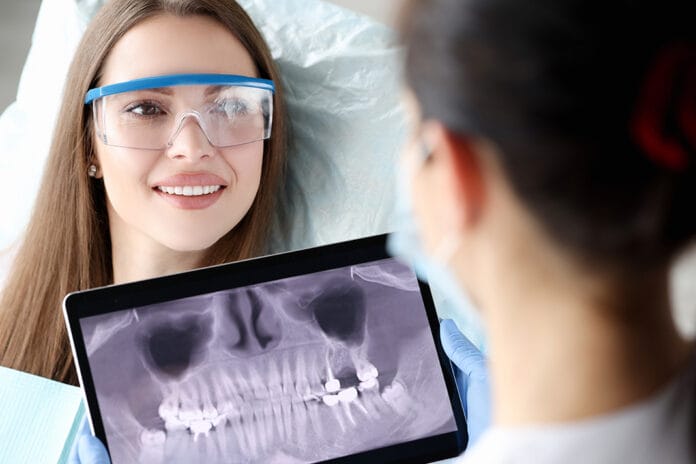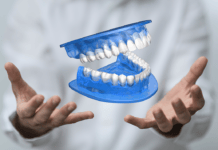Good oral health is essential for overall health and if you want to enjoy a higher quality of life. Harmful dental conditions such as periodontitis can have a serious impact on the body and systemic health. A recent scientific study examined whether the baseline stage and grade could predict future tooth loss due to periodontitis. The study, “The influence of the interaction between staging, grading, and extent on tooth loss due to periodontitis,” was published in the Journal of Clinical Periodontology.
About Tooth Loss
Tooth loss is a growing epidemic, especially among people who suffer from advanced stages of periodontal disease. Periodontal disease occurs when bacteria infect the tissues surrounding your teeth. This can happen as a result of oral bacteria building up and becoming more virulent over time due to poor brushing and interdental cleaning habits. Serious periodontal infections, such as periodontitis, can damage the underlying bone and tissue that supports the teeth and cause infection, bleeding gingiva, bone loss, gingival recession, inflammation, and eventually tooth loss.
Dental trauma and tooth decay are also considered some of the leading causes of tooth loss. Dental trauma happens when someone’s tooth is impacted and falls out due to a sports injury or accident. Meanwhile, tooth decay occurs when bacterial bi-products (acid) cause tooth decay, which manifests as holes or pits on the surface of the tooth and may damage the dental pulp underneath.
There are several risk factors that can significantly increase someone’s chances of experiencing tooth loss at least once in their lifetime. For example, men are more likely than women to lose their teeth. People over the age of 35 years old, cigarette smokers, and individuals who have diabetes, rheumatoid arthritis, or high blood pressure are also at risk. Tooth loss is also common among people who don’t practice good oral hygiene or receive adequate dental care from a professional.
About the Research Study
A team of researchers from the Department of Periodontics and Oral Medicine at the University of Michigan School of Dentistry and the Department of Periodontics at the University of Louisville School of Dentistry decided to collaborate for this study. Ultimately, they wanted to assess whether certain variables, such as a person’s baseline stage, grade, and extent of periodontal disease, could predict future tooth loss over a long-term follow-up period.
For the study, the scientists decided to recruit 442 patients who were treated for periodontal disease over a 23-year period. Only people with a complete medical history, full mouth radiographs, baseline periodontal chart, and at least 10 years follow-up were recruited. They measured the tooth loss rate among patients at 10-, 20- and 30-year follow-up intervals. The researchers also compared the patient’s stage, grade, and extent during each session where they received supportive periodontal therapy. The team used Kaplan–Meier survival curves and multilevel Cox regression frailty models to assess the correlation between the predictive variables and the patient’s tooth loss.
They quickly discovered that most of the participants, or 30.3% had a baseline that was at stage III grade B, quickly followed by 23.5% that had stage II grade B. The team decided that the stage and grade of the participant’s level of periodontal disease were the best predictors of future tooth loss based on their findings. However, the only differences that were statistically significant were among patients with stage IV or severe periodontal disease stage IV. The multilevel Cox regression analysis also revealed that patients were more likely to suffer tooth loss if they had a higher grading and concomitant baseline staging.
In Conclusion
By the end of the study, the team of researchers concluded that patients who had a higher concomitant staging and grading were at greater risk for tooth loss, especially if they had stage IV periodontal disease.











